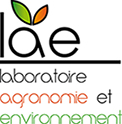Specialized metabolites can be produced in plants constitutively or induced in response to stressful environmental conditions. These molecules allow plants to protect themselves from UV radiation or from attacks by pathogens and pests. These molecules have been used empirically in traditional medicine for millennia. Recent analysis methods allow very precise characterization of these molecules. Thus, these molecules have structures that can be extremely complex to the point that they can only be produced with great difficulty by organic chemistry approaches.
Producing these molecules which have remarkable therapeutic properties is a major socio-economic challenge. One strategy is to extract them from plants; however, this quickly faced a supply limit due to the scarcity of the plant or production in very small quantities. To get around this difficulty, metabolic engineering consists in transferring the genes coding for the enzymes involved in the synthesis of these molecules in heterologous organisms serving as production plants. These organisms can be plants or microorganisms such as bacteria or even yeasts.
Our team uses metabolic engineering to produce molecules of interest. The tools developed are used both for basic research - in this case, it is a question of better understanding the cost / benefit balance of the production of specialized metabolites in plants - and applied; it's about producing molecules with high added value.
Lead researchers:
Link to:


